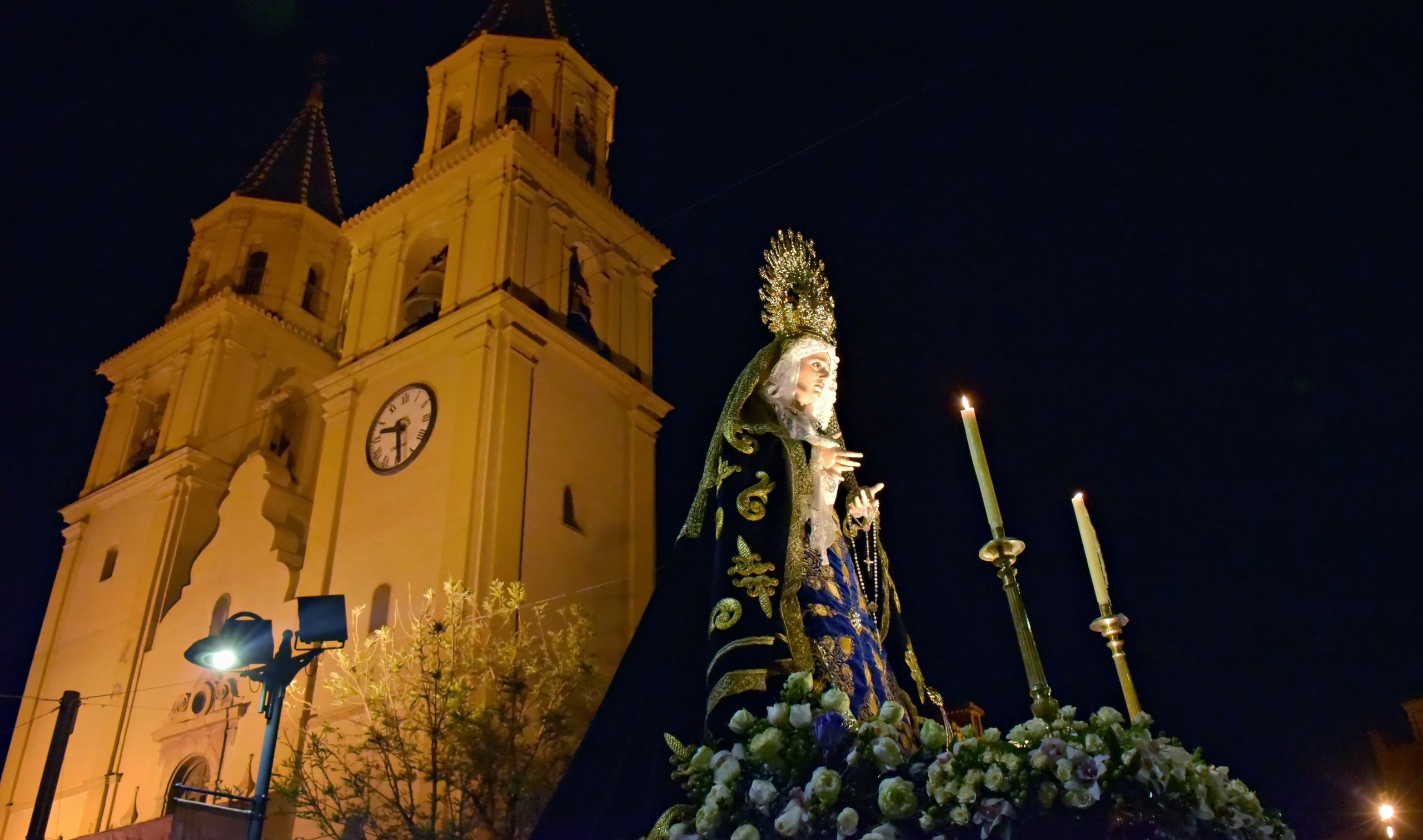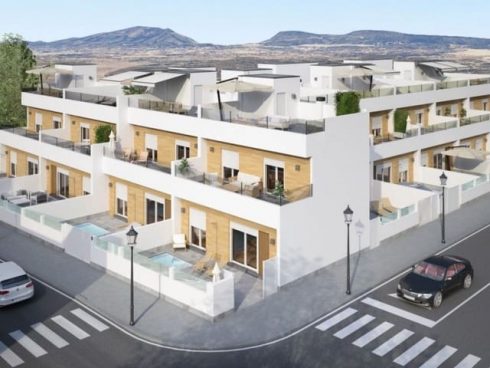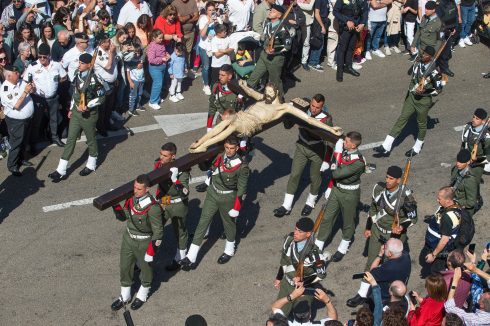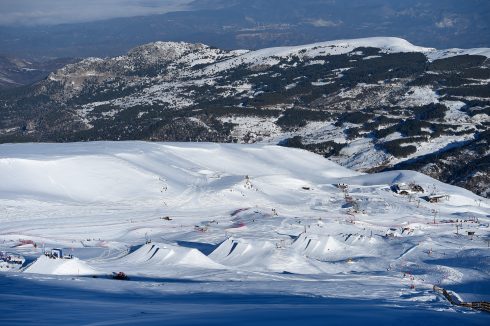LAST night, April 7, the thriving market town of Órgiva celebrated its annual Viernes Santo event. In a traditional and well-attended procession, Santo Sepulcro and Virgen de los Dolores effigies were paraded through the streets by costumed penitents, until the early hours.
Friday evening also saw the launch of Órgiva’s 26th Tourism, Crafts and Gastronomy Fair, ‘Made in the Alpujarra’, which takes place in the municipal tent. Featuring many stands offering leather goods, wine, cheese and olive oil – to name a few products – the event ends on Sunday evening.
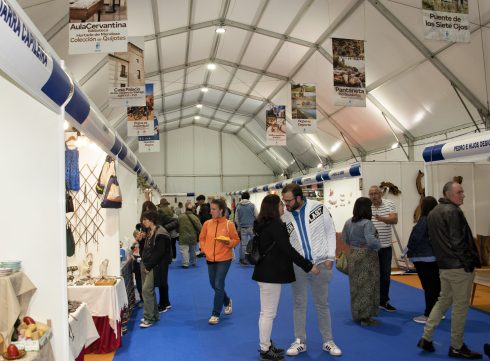
Departing the church of ‘Señora de la Expectación’ at 9pm, the Viernes Santo procession was accompanied by the Exoche marching band and singer, Antonio Fernández, who stood on a balcony opposite the historic church. His haunting song evoked ‘dolor y soledad’ (hurt and loneliness) and brought silence to the crowd.
Semana Santa is one of Spain’s key annual celebrations, roughly equating to Easter in the UK, but with a history of theatrical processions dating to the 16th century. Historically, the processions were designed to explain the Passion of Christ to non-religious people.
Throughout the Easter week, mayor parts of crucifixion and resurrection of Jesus are reenacted, ending tomorrow with Palm Sunday.
The focus on theological history contrasts to Britain’s Easter Sunday (tomorrow), which is largely based on chocolate eggs and bunnies, as religious belief has declined in the UK.
Yamila, a Spanish 16-year-old, told us: “I go with my friends. I’m not religious, but there are young people who like it a lot.”
Pablo Antonio Miguel Freely, a resident of Órgiva, aged 52, said: “I come from an Irish Catholic family in Manchester. I rejected religion as a teenager and I’m detached from the religious, political, and cultural connotations of Semana Santa, and can enjoy It for the spectacle that it is. There’s a real expression of emotion, amazing theatre, and drama with music, trumpets, and drums.”
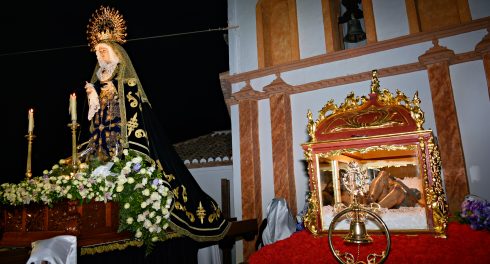
Sue, a British resident of Tijola, said: “I like to see traditions continued and that small children are involved. Many people aren’t religious, but it brings people together as a community.”
Local Author, Andy Bailey, said: “Street theatre at its best. A big thanks to all the participants.”
READ MORE
- A banging event: Cristo in Orgiva in Spain’s Granada is known for its explosive fireworks
- From Migas to Michealmas: Orgiva’s annual feria in the heart of La Alpujara
- Camping Orgiva is the perfect place for your visit to La Alpujarra

